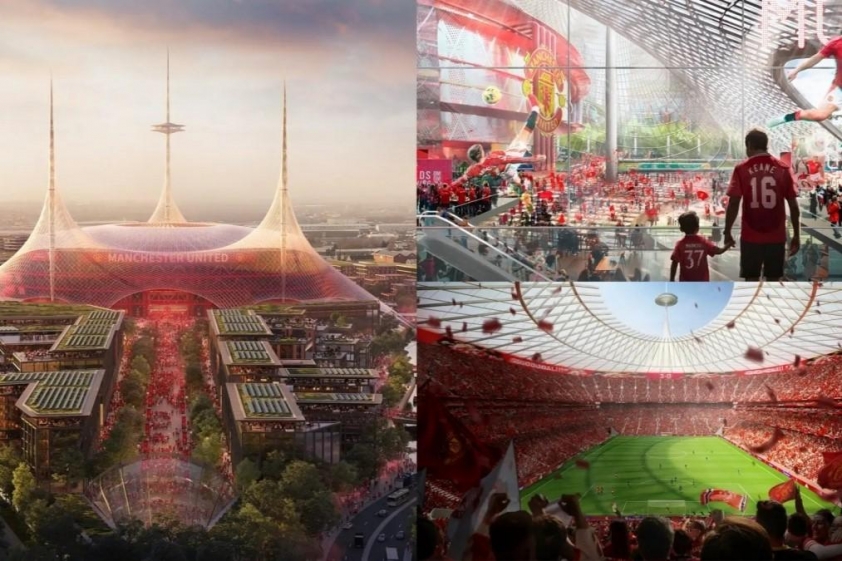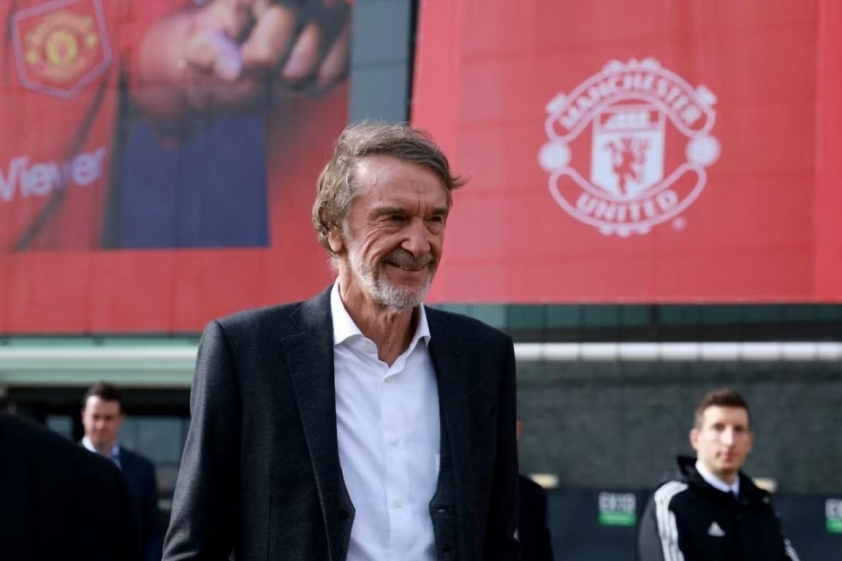Manchester United's £2 billion plan faces the risk of collapse
Man United is at risk of postponing the construction of a 100,000-seat stadium, as the latest financial report reveals the club is carrying over £1.1 billion in debt.
Manchester United is facing the possibility of delaying its plan to build a new stadium with a capacity of up to 100,000 seats, as the 2024-25 financial report shows the club’s debt has reached £1.1 billion.
Previously, Sir Jim Ratcliffe declared his ambition to create the “greatest stadium in the world” within five years, with an estimated cost of around £2 billion. This project is part of a comprehensive redevelopment plan for the Old Trafford area. However, the current financial burden makes this goal seem distant.

According to BBC Sport, the latest financial figures have raised alarm bells. Stefan Borson, former financial advisor to Man City, believes Man United’s current debt level is “excessively high,” especially since the club still needs to spend heavily to upgrade the squad.
He explained: “The net debt to pre-tax profit ratio for Man United is currently five times. With plans to invest both in the squad and a stadium costing over £2 billion, the pressure on the balance sheet will be immense. Without capital from shareholders or new investors, the project might have to be paused.”
Despite the worrying debt situation, Man United continues to demonstrate commercial strength. Revenue for the 2024-25 season rose from £661.8 million to £666.5 million, securing the club’s position as the second-highest earner in the Premier League, just behind Man City. Notably, commercial revenue also saw a significant increase, from £302.9 million to £333.3 million.
However, the absence from the Champions League caused broadcasting revenue to drop sharply, from £221.8 million to £172.9 million. On the other hand, matchday income rose from £137.1 million to £160.3 million. Importantly, the club’s loss was significantly reduced from £113.2 million to just £33 million, while the wage bill also decreased from £364.7 million to £313.2 million.

Nevertheless, Borson warns that these improvements are insufficient to ease concerns. He cautions that the total cost of the stadium mega-project could escalate to £4 billion due to inflation effects. This forces Man United to consider additional funding options, possibly through Sir Jim Ratcliffe increasing his ownership stake or attracting new investors.
Given the current situation, experts believe Man United’s new stadium project is unlikely to proceed in the short term. Without a breakthrough financial solution, the dream of the “greatest stadium in the world” will have to be put on hold.










 Links
Links
 Contact
Contact
 App
App


